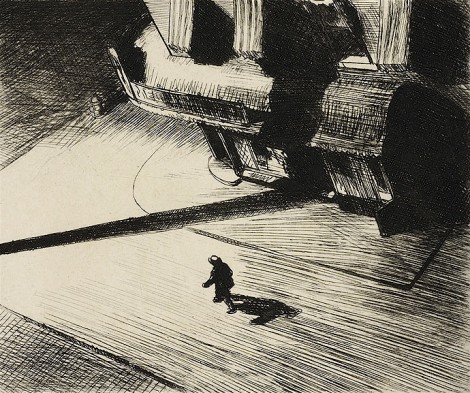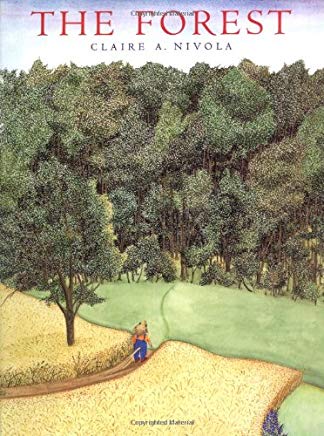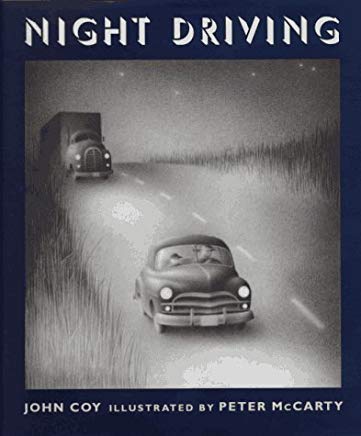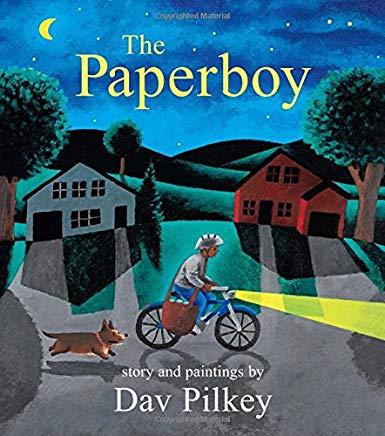The Blog
Blog Entry
Shh
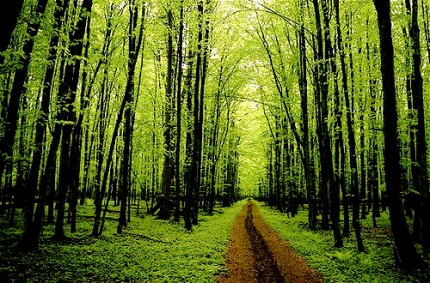
In Claire Nivola’s The Forest, a mousey little character braces himself at the beginning of a drama in which he ends up being the only actor. Or sort of:
“I had always been afraid of the forest, that dark and unknown place at the edge of my little world.”
So he travels there. I did not fall in love with this book the first time I read it: nothing remarkable ends up happening in that forest, nobody jumps out of the bushes, or befriends him, or otherwise teaches the mouse about the ways of the wild; he doesn’t even get lost. You hear people talk about “event,” particularly when there’s a lot of money to be made from our distraction, but I think this as often refers to developments – in plot or in character – which can be described in the fewest possible words as to whatever it is that drives narratives. Because that is mysterious stuff – the power to surprise – and the older we get, the greater, the louder, the wordier lengths we may need to travel to even find it.
You get a lot of mileage out of monsters with a four-year-old. And aliens, and talking trees, and whatever else it was I probably went looking for in Nivola’s forest. These things are habits, and they are collaborative, and probably self-fulfilling. Like reading a pop-up book to your nine-month-old, and there it is again – “Peek-a-You!” with that mirror on the final page – but you go ahead and read it ninety more times. We all get into it, even when it isn’t always clear who’s holding the mirror.
And if it is merely some first little sparks – of awareness, and comprehension, and the promise of a lifetime stuffed with mutual hilarity - that we are attempting to coax from our children before they can chew, then maybe these quieter books offer a glimpse of the world they are more likely to encounter as they get older. A landscape with fewer striking climaxes, and obvious resolutions, that requires interpreting, imagining or maybe – I don’t know. Maybe we’re just tired of all the shouting.
Either way, this type of book strikes me these days as an extraordinary blessing when I can find, or rediscover, it. The Paperboy also did not jump off the shelf of at us when I and my children were younger. I’m sure I’ve read it a bunch of times over the years, and though it is told in very simple language, for fairly early readers, I guess I always thought it was a story about responsibility – of a boy and his paper route – and I guess it never looked worth all his getting up in the dark and the cold, though I had forgotten, or I did not sufficiently appreciate the treasure of silence that is buried in these pages:
“The paper boy knows his route by heart, so he doesn’t even think about which house to pedal to. Instead, he is thinking about other things. Big Things. And small things. And sometimes he is thinking about nothing at all.”
Oh, the luxury of thoughtfulness! That rare, forsaken gift! Many years ago, I knew a guy in my neighborhood who joked about the career in international finance I must have been conducting while my children were napping. A guy, in other words, who knew me just well enough to acknowledge me as a father, but not well enough to want to know any more – this guy loaned me a book he said was very important to him, growing up with a father whom he hardly knew, except to the extent that he, the father, was overbearing, a little aloof, or anyway that was my understanding of it from across our little distance. The book was called Night Driving, by John Coy, and I was sorry not to be able to report back to this guy with anything approaching believable enthusiasm. I thought it was okay.
The guy moved out of our neighborhood, and I have not thought of him much lately, until I came across that book on a shelf at the store, deciding to give it another look. And I wondered – really worried – about that former version of myself who could not see into the keyhole of this story of a boy and (yes) his father driving all through the night, past mule deer and high beams and constellations, through alphabet games and cowboy songs, a flat tire, all the way through breakfast, so they can get to pitching their tent just as morning arrives in the mountains. It’s no small ambition – such purpose, such peace – which I am lucky to be able to keep on a shelf, and refer back to, and recommend to people on the street, even if I’m just a guy you barely know.
